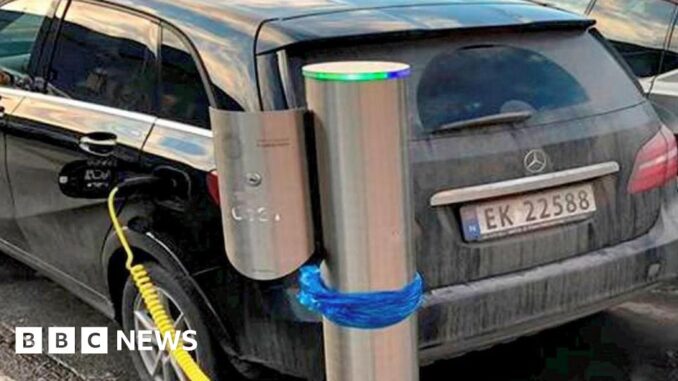
Norway, one of the world’s largest exporters of oil, now has more electric cars on its roads than petrol-driven vehicles.
Of the 2.8 million private cars registered there, 754,303 are now all-electric, compared with 753,905 that run on petrol, according to new figures from the Norwegian Road Federation.
The Nordic country of 5.5 million people is aiming to become the first nation to end the sale of new petrol and diesel cars – by 2025.
Sales of electric vehicles (EVs) have been boosted by tax breaks and other incentives, funded in large part from the money Norway makes out of oil and gas.
The country has a sovereign wealth fund worth more than $1.7 trillion (£1.3tn), built up from the proceeds of its oilfields, to act as a “pension fund” for when it runs out.
This cash cushion has made it possible for the government to offer green incentives to motorists, including exempting electric car buyers from sales tax.
In the early days of the EV revolution, Norway’s environmental activists even enlisted the help of the country’s biggest pop group, A-ha, to promote the use of the vehicles.
Despite this milestone, there is still work to be done. Diesel models remain most numerous at just under one million, but their sales are falling rapidly, says the Norwegian Road Federation.
At present, nine out of 10 new cars sold in Norway are electric vehicles, industry figures indicate. And it’s not hard to see why when you consider how much the authorities do to favour them.
Many places offer free parking for EVs and their drivers do not have to pay city tolls.
And while electric car owners in many countries complain about the lack of charging facilities, there are numerous free chargers in every Norwegian town and city, with 2,000 of them in Oslo alone.


Be the first to comment